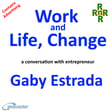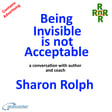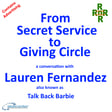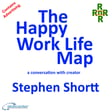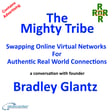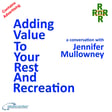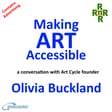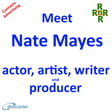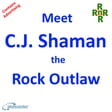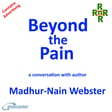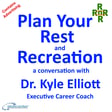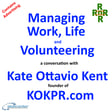
Podcasting from Hobby to Service - a conversation with podcaster Dan Swift
Dan Swift is a successful IT professional with a serious career with a large organisation.
When Dan goes home, in addition to being a committed family man Dan is also the host of the hit podcast Time to Discuss.
In this episode of the Abeceder work life balance podcast Rest and Recreation Dan Swift explains to host Michael Millward how the podcast Time to Discuss was created.
Dan explains how the job-hunting experiences of family members motivated him to create a podcast on that focuses on providing genuine careers advice.
Michael and Dan discuss the differences between how entertainment and sports stars like Brad Pitt and Shelley Winters manage their careers with a clear aim of the type of career and lifestyle they want to have. and how people with more conventional careers manage theirs.
They discuss how what you do away from work for rest and recreation can impact your ability to develop your career.
Audience Offers
Rest and Recreation is made on Zencastr, because creating podcasts on Zencastr is so easy, you can as well by visiting Zencastr and using our offer code ABECEDER.
Travel – at trade prices anywhere in the world at trade prices on flights, hotels, trains, and holidays as members of The Ultimate Travel Club.
Health – York Test provides an Annual Health Test. An experienced phlebotomist will complete a full blood draw at your home or workplace. Hospital standard tests covering 39 different health markers are carried out in a UKAS-accredited and CQC-compliant laboratory.
A Personal Wellness Hub gives access your easy-to-understand results and guidance to help you make effective lifestyle changes anytime via your secure, personal Wellness Hub account.
Visit York Test and use this discount code REST25.
Tech Problems? – Visit Three for information about business and personal telecom solutions from Three, and the special offers available when you quote our referral code WPFNUQHU.
If you have liked this episode of Rest and Recreation, please give it a like and download it. To make sure you do not miss future editions please subscribe.
Remember, the aim of all the podcasts produced by Abeceder is not to tell you what to think, but we do hope to make you think!
Being a Guest
If you would like to be a guest on Rest and Recreation, please contact Abeceder.
Matchmaker.fm introduce many guests to Rest and Recreation. Matchmaker.fm is where great hosts and even greater guests are matched, and fantastic podcasts are hatched. Use code MILW10 for a discount on membership.
We recommend that potential guests take one of the podcasting guest training programmes available from Work Place Learning Centre.
Thank you to you for listening.
We appreciate every like, download, and subscription.
